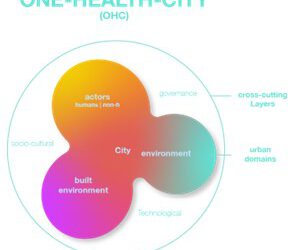On December 13, 2023, Matthias Weigand will defend his doctoral thesis entitled “Fernerkundung und maschinelles Lernen zur Erfassung von urbanem Grün – Eine Analyse am Beispiel der Verteilungsgerechtigkeit in Deutschland” at the University of Würzburg.
The disputation will take place at 2 p.m. in seminar room 1 at the Earth Observation Research Cluster, John-Skilton-Str. 4a, Hubland Nord.
In his work, Matthias Weigand assessed how remote sensing, openly available large scale geo data, and machine learning can be utilized to localize urban green nationwide in high spatial detail. Resulting datasets on urban green were used to analyze the distribution among the population of Germany. We cordially invite you to come to the public disputation of Mr. Weigand.









